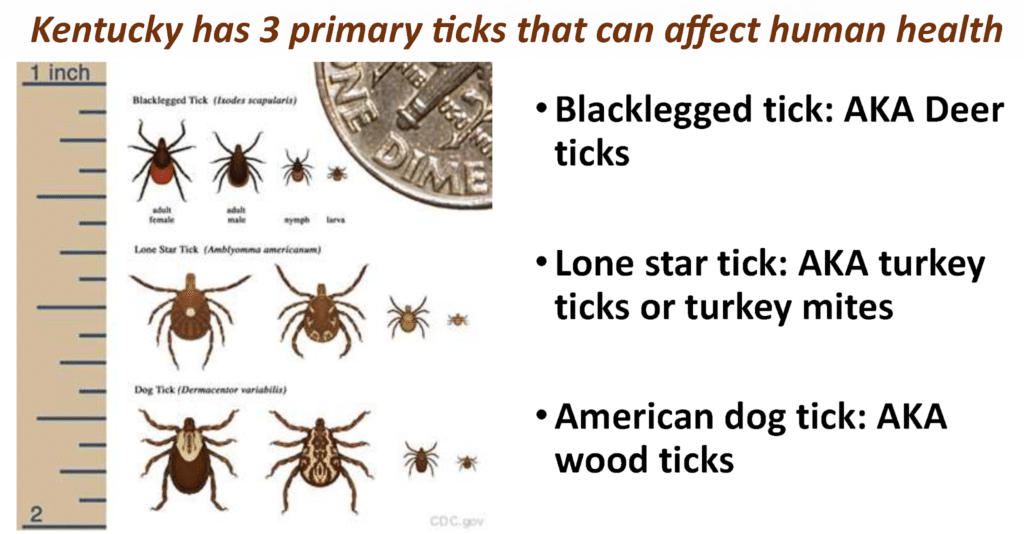Ticks are a threat in Kentucky year-round, but especially in the summer months. The next time one bites you, stop and think before flushing it down the toilet. You could help other people by mailing it to the University of Kentucky entomology department to see if it carries disease or not.
Here’s how: If you find a tick on yourself or your pet, remove it with tweezers, place it in alcohol in a sealed container or bag, and mail it to the university’s entomology department. Those are the instructions Professor Reddy Palli, who chairs the department and serves as state entomologist, told Aaron Mudd of the Lexington Herald-Leader.

A university spokesperson told Mudd to check with your local UK Extension office to see exactly where to mail a specimen for study.
“We will contact the person who submits the specimen if we detect pathogens in the tick and encourage them to contact their physician,” Palli told the Herald-Leader in an email.
Mudd reports, “As a leader in his field, Palli is overseeing several researchers who are studying tick populations in Kentucky, monitoring the diseases they spread and potentially engineering ways to repel them or even stop them from searching for blood in the first place.”
Katie Pratt of the UK College of Agriculture, Food and Environment also wrote about the work of Palli and his colleagues.
She reports that one of the Palli’s graduate students is Anna Pasternak, who leads the Kentucky Tick Surveillance Program. She collects ticks to analyze their genetic material and any disease-causing pathogens hiding within them. The program has been collecting information on ticks in the state since January 2019.
“Preliminary results show that the greatest number of ticks exist in wooded areas of the state and at Land Between the Lakes, and 10% of them carry a pathogen that cause diseases like Lyme disease, Rocky Mountain spotted fever, alpha-gal and others,” Palli said.
The last disease he mentioned can cause an allergy to red meat.
“We really did not expect pathogen presences in these ticks to be that high,” Palli said.
“Our goal is to take Anna’s data and educate farmers, loggers, physicians and health care workers about the ticks in the state and ways to minimize their effects. For example, if someone gets bitten by a tick carrying the Lyme disease pathogen and they get an antibiotic within 72 hours, it is likely the antibiotic will kill the bacteria that causes Lyme disease. Not many people know that, and by the time symptoms appear, it’s often too late.”





